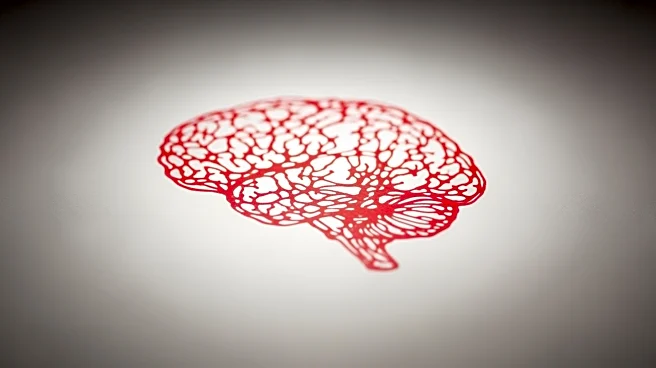What's Happening?
A mother from Maldon, Essex, was shocked to discover that her four-year-old daughter's internal bleeding was caused by a rare birthmark on her brain. The child, Blake, was left partially paralyzed on her right side due to a strawberry birthmark, known
as a haemangioma, and had to relearn basic skills such as walking and writing. Despite initial recovery, the birthmark bled again last month, causing a setback in her progress. Blake's mother, Abbie, is seeking private physiotherapy sessions to aid her daughter's recovery, as NHS sessions are infrequent. The Department of Health and Social Care has stated it is working to improve physiotherapy services. The case highlights the complexity and potential severity of internal birthmarks, which can have significant health impacts.
Why It's Important?
This case underscores the challenges faced by families dealing with rare medical conditions and the limitations of public healthcare systems in providing timely and adequate support. The situation highlights the need for increased awareness and resources for conditions like haemangiomas, which can have serious health implications. The Department of Health and Social Care's commitment to improving physiotherapy services is crucial for families like Abbie's, who require more frequent and specialized care. The story also emphasizes the emotional and financial strain on families seeking private healthcare solutions when public services fall short.
What's Next?
Abbie is currently raising funds to afford private physiotherapy sessions for Blake, aiming to enhance her recovery process. The family is awaiting results to confirm the complete removal of the birthmark and is exploring medication options that may help shrink any remaining mass. The Department of Health and Social Care's plans to strengthen physiotherapy services could potentially benefit Blake and others in similar situations, though the timeline and specifics of these improvements remain unclear.
Beyond the Headlines
The case brings attention to the broader issue of healthcare accessibility and the disparities faced by families dealing with rare medical conditions. It raises ethical questions about the adequacy of public healthcare systems and the reliance on private solutions for critical health needs. The emotional impact on families and the need for support networks are also significant considerations, as highlighted by the Birthmark Support Group's involvement.
















